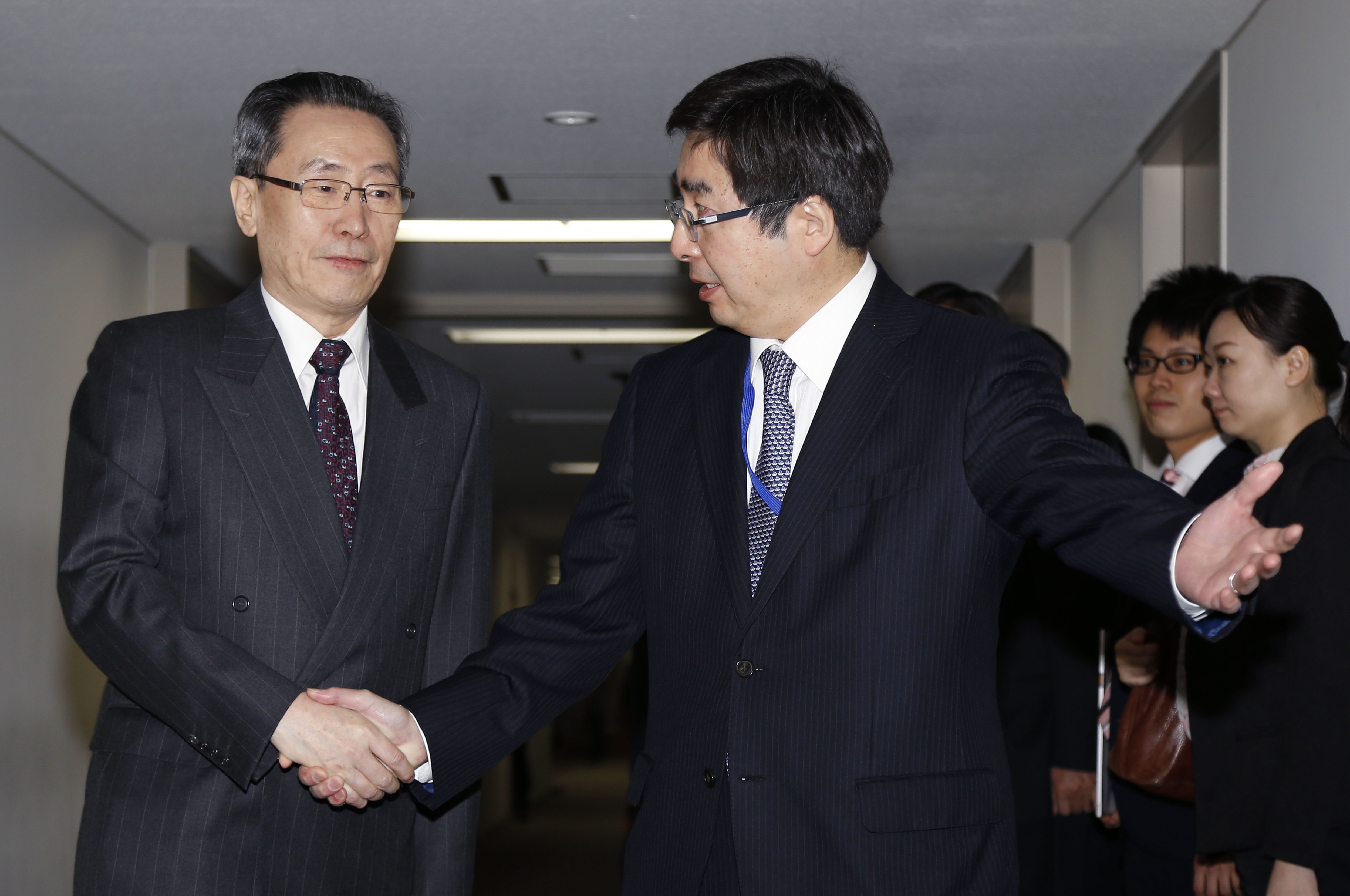China's special representative for the Korean Peninsula, Wu Dawei, met with his Japanese counterpart Tuesday to show a concerted effort to deal with North Korea's growing nuclear ambitions.
The meeting comes at a time when the efficacy of recent United Nations sanctions hinges largely on China's thorough implementation of them.
In talks with Kimihiro Ishikane, director-general of the Foreign Ministry's Asian and Oceanian Affairs Bureau, Wu agreed that they will closely cooperate in implementing the U.N. resolution, which imposed the toughest sanctions on the North to date.


















With your current subscription plan you can comment on stories. However, before writing your first comment, please create a display name in the Profile section of your subscriber account page.